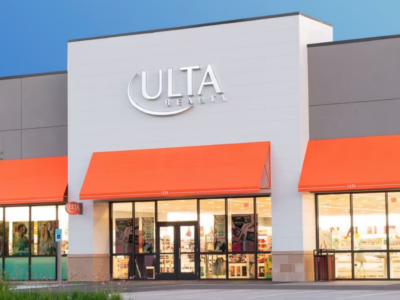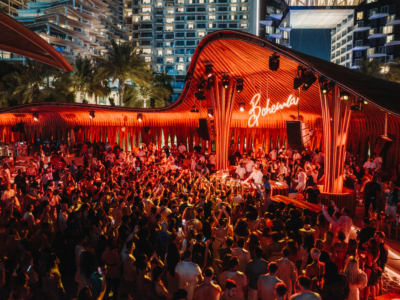Gen Z is driving a surge in demand for cosmetic surgery procedures like Botox, fillers and liposuction in the Dubai, outpacing Millennials and Boomers, a dermatologist revealed to Arabian Business.
The increasing demand for cosmetic surgery by younger demographics has been speculated to have been caused by social media promoting more “unrealistic beauty standards” – prompting a demand spike towards plastic surgery as a solution.
“In recent years, there has been a greater uptake in cosmetic procedures among Gen Z than among Millennials and Boomers,” said Dr. Mona Ragab Mohamed Elmeligy, Dermatology Specialist at Dubai’s Tajmeel Royal Clinic.
“Cosmetic enhancement procedures have become more normalised in recent years.”
Gen Z demand for fillers, Botox rising globally
Nose jobs, breast augmentation, Botox, and lip fillers are no longer taboo, as they have seeped their way more and more into the mainstream over the last few years.
Although both male and female Gen Z patients have shown interest in cosmetic procedures, said Elmeligy, women are the majority.
The uptick in demand by Gen Z was also seen in the US earlier this month as the American Academy of Facial Plastic and Reconstructive Surgery reported that 75 percent of the industry professionals have seen an increase in clients who were under the age of 30.
“This is likely due to increased awareness, technological advancements, and the influence of social media and popular culture,” Elmeligy said.
“The quest for the fountain of youth now begins in the 20s for many people,” New York-based Plastic Surgeon Dr. Richard Westreich said in a statement earlier this month, following the release of these findings. He believes that everyone now “lives the life of celebrity.”
The Kardashian-Jenners are notorious for causing a stir in the world of plastic surgery and cosmetic enhancements. Kylie Jenner’s infamous lip fillers caused a commotion online back in 2014 and 2015 as social media users began to speculate whether her lips were enhanced with Juvederm fillers or contoured really well with lip liner.
When she eventually came clean, her and the rest of the Kardashian clan’s openness about their procedures has somewhat diminished the taboo associated with getting work done for many.
Since then, procedures have become more and more widely available. Elmeligy said that it no longer seems to be restricted to people of a certain financial status or age like it used to before.
“Dubai has emerged as a popular destination for medical tourism, attracting people worldwide for various treatments. The city’s reputation for luxury, coupled with its advanced medical facilities, has contributed to the growth of this market,” she added.
The global market for cosmetic surgery grew from $42.55 billion last year to $46.45 billion in 2023 at a compound annual growth rate of 92 percent, according to a report by the Business Research Company.
“The market for cosmetic procedures in Dubai has been growing steadily over the past several years,” she said.
With technological advancements in the field and greater access, the industry’s boom shows no signs of waning any time soon as these procedures become less and less taboo over time.
A study by the American Society for Aesthetic Plastic Surgery reported an increase of 446 percent between 1997 and 2007 – this number is expected to be much higher today.
‘Beauty bias,’ unrealistic standards fuel rise in demand
Elmeligy believes that social media and celebrity culture have played a crucial role in popularising these treatments – a sentiment which was also echoed by Psychiatrist Dr. Nada Omer Mohamed Elbashir, from Abu Dhabi’s Burjeel Hospital.
“There is no doubt that humans seek influence and approval from their surroundings. It has always been part of societal involvement and evolution. These days, there are serious demands to fit within the standards of society and particularly beauty and physical standards,” Elbashir told Arabian Business.
The younger generation’s exposure to social media, “unrealistic beauty standards” and “beauty bias” may be fuelling their desire to attain physical perfection. And as social media has been linked to more people struggling with confidence and self-acceptance, many young adults have decided to turn to cosmetic enhancements for “an almost guaranteed boost in self-esteem,” Elbashir explained.
“While it might have a positive effect on some individuals, it is not a solution to many underlying mental health issues such as body dysmorphic disorder and depression,” she said.
“Cosmetic procedures are not risk-free. There are many mental health risks associated with them. Some individuals who remain preoccupied with their physical appearance, perceiving its flaws and defects, might be struggling with Body Dysmorphic Disorder. Others might struggle with depression and seek cosmetic procedures as a solution for their underlying undiagnosed psychological struggle.”
The pandemic seems to have also had a massive impact on demand.
“The pandemic has caused a greater struggle with mental health for many individuals and with the use of video conferencing, many people grew to become more self-conscious and aware of their physical features,” Elbashir said.
“People spent unmatched amounts of time on social platforms, pushing them to further compare their physical features to others.”









